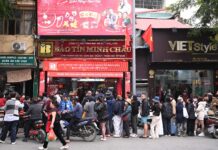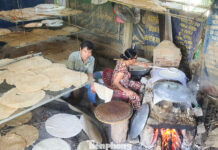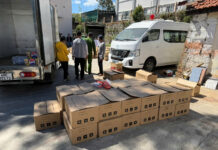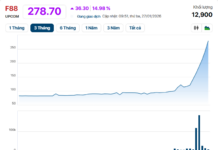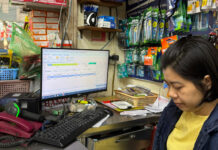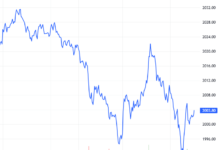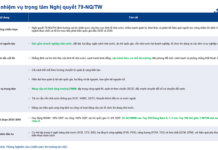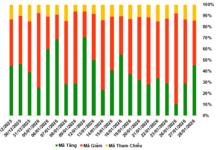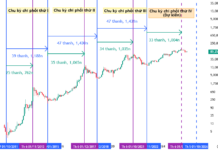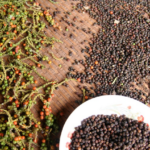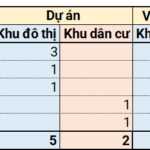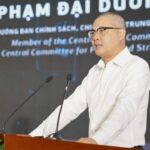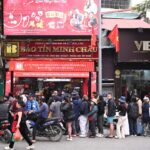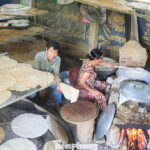“The billion-dollar crop” is none other than the coconut.
The Ministry of Agriculture and Environment reveals that Vietnamese coconuts have a significant advantage in terms of market and production volume. The country currently has over 200,000 hectares of coconut plantations, with an annual yield of approximately 2.28 million tons.
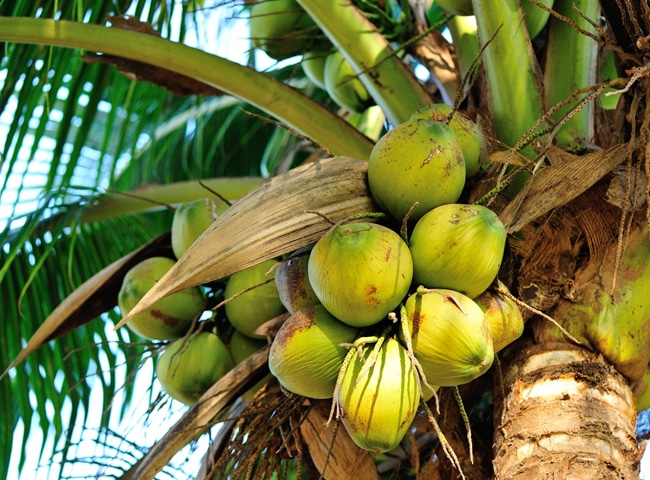
Coconuts are Vietnam’s billion-dollar crop. Photo: Rimex
Thanks to this production, Vietnam ranks 4th among coconut-exporting countries in the Asia-Pacific region and 5th worldwide.
According to the Vietnam Coconut Association, in the first half of 2025, the coconut industry achieved an export turnover of 489 million USD, with whole coconuts (dried and fresh) contributing 216 million USD, a 40% increase compared to the same period in 2024.
In 2024, the total export turnover of coconuts from Vietnam reached 1.089 billion USD. The coconut industry aims for a 20% growth in 2025, striving to surpass the 1.2-billion-USD mark.
Vietnamese coconuts typically grow on trees ranging in height from 3 to 25 meters, depending on the coconut variety (dwarf or tall) and environmental conditions.
Unleashing the Potential of the “Billion-Dollar Crop”
Coconuts are exported from 179 countries worldwide, and Asia leads the production, accounting for over 80% of the total output, with the Philippines, Indonesia, and Malaysia at the forefront.
Thanks to the myriad health benefits of coconut water, often dubbed “Miracle Water” for its high content of potassium, magnesium, calcium, and more, coconuts and coconut products are favored and imported by 225 countries globally.
This “demand” advantage presents a tremendous opportunity for Vietnam to achieve its goal of surpassing the 1.2-billion-USD export mark in 2025 and establishing Vietnamese coconuts in the international market.
The equation to solve is to enhance the value of coconuts from the root up.

Photo: Rimex
First: Embrace Technology and Transparency
The Ministry of Agriculture and Environment sets a clear goal: by 2030, the country’s coconut area will expand to 210,000 hectares, with 30% of this area (equivalent to 63,000 hectares) adopting the GAP (Good Agricultural Practices) standard or its equivalent; and 30% (63,000 hectares) will be assigned a growing area code.
These two goals need to be implemented simultaneously to enhance the quality and traceability of Vietnamese coconuts. The GAP standard ensures that coconuts are grown, harvested, and processed according to high safety and quality standards, minimizing environmental impact and safeguarding consumers’ health.
Assigning growing area codes enables authorities and consumers to trace the product’s origin, identify the cultivation area and production time, thereby enhancing the transparency and credibility of Vietnamese coconuts.
To meet GAP standards and achieve transparent growing area codes, farmers need to simultaneously implement technology—such as automation, digital management, and AI—from cultivation, harvesting, preservation to transportation.
Second: Deep Processing
To increase the value of Vietnamese coconuts, we need to process them into a diverse range of convenient products, such as coconut oil, canned coconut water, canned coconut milk, and more.
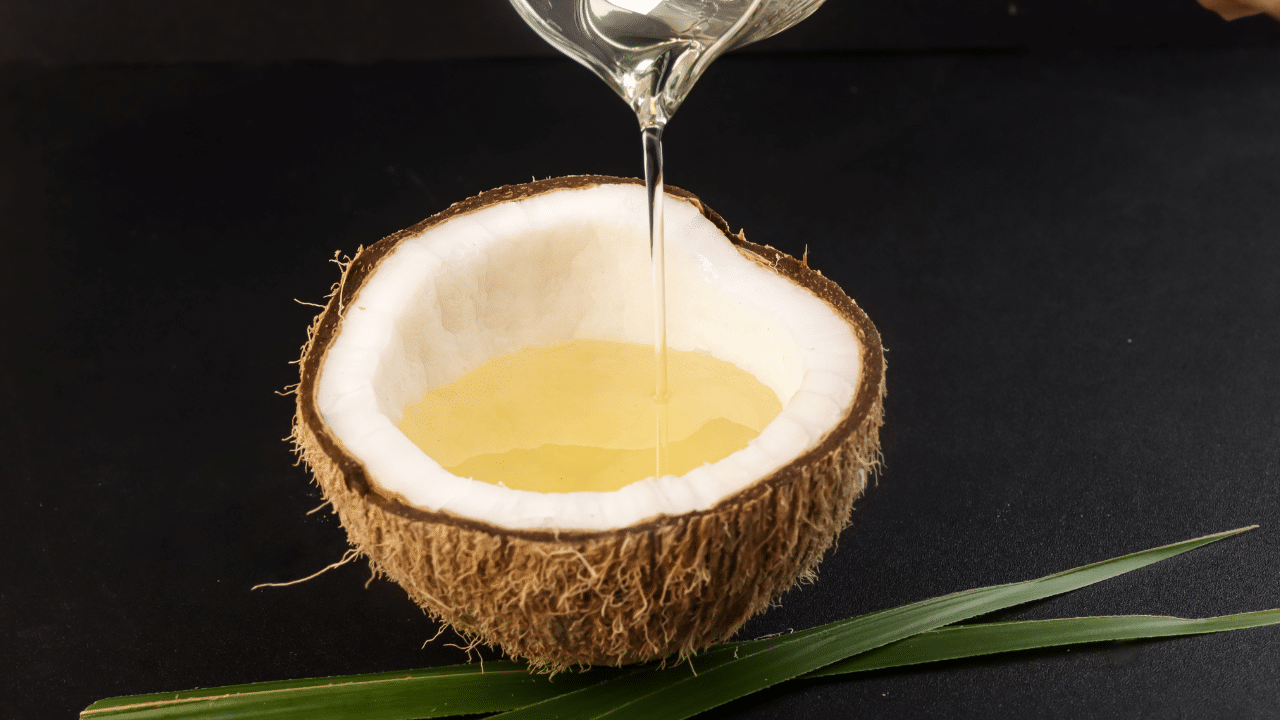
This is where the contribution and efforts of Vietnamese enterprises like Vina T&T Group, Betrimex (Ben Tre Import-Export Joint Stock Company), and GC Food come into play. Among them, Betrimex stands out as a company that has taken Vietnamese coconuts global, with its products trusted by over 70 countries.
With nearly 50 years of experience, Betrimex has quickly embraced technology in deep coconut processing while building a sustainable coconut ecosystem.
The “technological heart” of Betrimex’s deep processing chain is the world-class production line from Tetra Pak (Sweden) and the UHT direct sterilization technology.
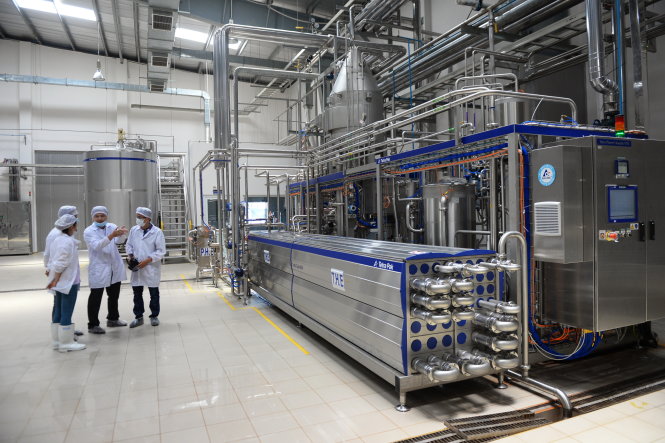
Betrimex factory adopts the world’s leading UHT sterilization technology. Photo: Huu Khoa
UHT (Ultra High Temperature) is the latest technology that ensures the natural flavor of coconuts and is extremely safe for consumers (no preservatives). With UHT, coconuts are sterilized at a temperature of 140-144°C for 2-4 seconds using the direct steam injection method, followed by rapid cooling to 22-30°C.
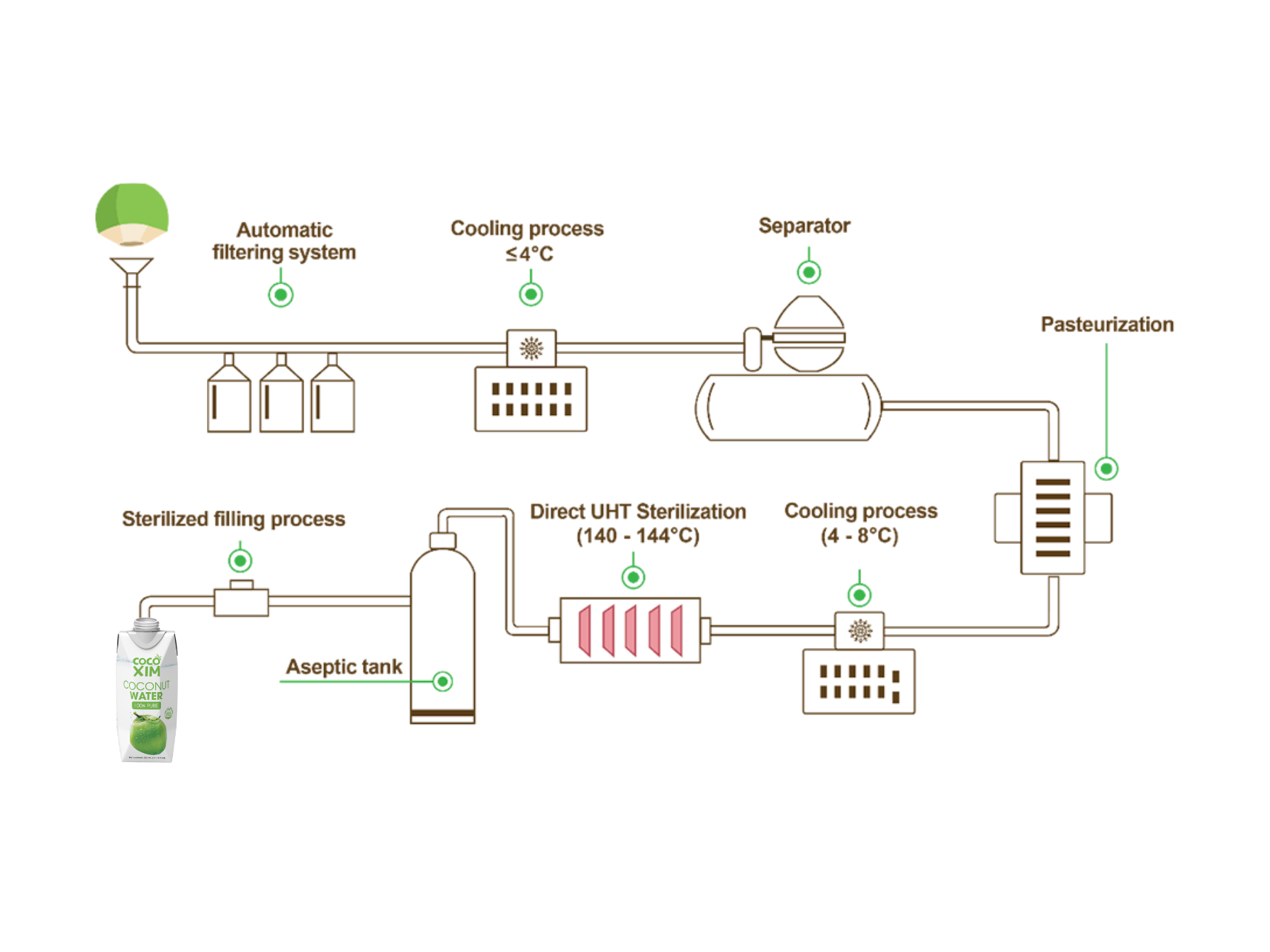
The UHT sterilization steps preserve the natural taste of Betrimex coconuts. Photo: Betrimex
Thanks to this technology and process, the products maintain stable quality for 12 months without the need for refrigeration or preservatives, while also saving about 35% of electricity fuel.
Consequently, Betrimex’s products meet various certifications, including FSSC 22000, BRC, FDA, HALAL, KOSHER, USDA-NOP, EU-ORGANIC, BSCI, ISO 14001:2005, and OHSAS 18001:2007, earning the trust of millions of consumers from 70 countries worldwide.
To support businesses in their journey to bring Vietnamese coconuts to the global stage, in July 2025, the Vietnam Coconut Association, in collaboration with the Vietnam Bank for Agriculture and Rural Development (Agribank), launched the program “Building Coconut Supply Chain” to stabilize the raw material region, enhance product value, and promote the sustainable development of the coconut industry.
The pilot phase will be carried out from September to December 2025 in Dong Thap, Vinh Long, and Can Tho, involving approximately 2,700 households, 90 businesses, and cooperatives.
By January 2026, the model is expected to be replicated in 16 provinces and cities with coconut-growing areas, contributing to the stabilization of farmers’ livelihoods and the enhancement of the Vietnamese coconut brand in the international market.
.
Danang Attracts 25 Semiconductor Companies
On August 30, Danang hosted the Danang Semiconductor Day 2025. The event was led by the Danang People’s Committee and the Central Policy and Strategy Committee, showcasing the city’s strategic vision for the development of high-tech industries.
The New Vietnam: A Nation Transformed
According to Gerry Brownlee, Speaker of the New Zealand House of Representatives, Vietnam has undergone a remarkable transformation since the restoration of peace. The country is now on the brink of a significant leap in terms of per capita GDP growth, which will ultimately enhance the well-being of its citizens.
“Blockchain: Unlocking Vietnam’s Digital Economic Potential”
“Mr. Pham Dai Duong, Deputy Head of the Central Policy and Strategy Unit, asserts that blockchain technology presents a unique opportunity for Vietnam to leapfrog into the forefront of digital innovation. “

